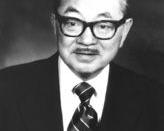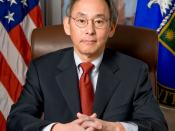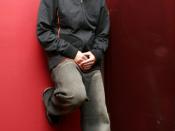Hayakawa vs. King
What? Como? Does language matter? There is a movement to establish English as the official language of the United States. Surprising as it may seem, this issue is growing more and more controversial. Two key players involved in the issue are Robert D. King, a scholar and teacher, and Samual Ichiye Hayakawa, a senator and teacher. Each uses a unique interpretation of evidence to express his position on the matter.
Historical evidence and statistics is Hayakawa's approach to persuasion. By bringing history into his argument, Hayakawa strengthens his position but also opens many loopholes. His statistical evidence is persuasive but a lack of a bibliography or works cited leaves the reader skeptical.
A use of historical examples is his discussion of the Japanese and Chinese Americans coming together, "During the dark days of World War II, Chinese immigrants in California wore badges proclaiming their original nationality so they would not be mistaken for Japanese.
. . Today, they get together and form Asian-American societies" (Pg 388). This congregation of Asian Americans could just as easily be because both groups confronted discrimination first hand and found a bond in their status with Americans. Hayakawa's observations do not always seem reliable and he does not attempt to acknowledge the loophole.
Wrapped throughout his paper is weak historical evidence, here in Hayakawa's Belgium discussion. He states, "Belgium is another clear example of the diverse effects of two officially recognized languages in the same nation... a clear recognition of the diverse effects of linguistic separateness" (pg 389). It is very simplistic to blame political unrest on language. Diverse cultures struggling to gain power have more to disagree on than just language. In addition, language does not solve a problem most of the time; the Irish speak the same language and...


